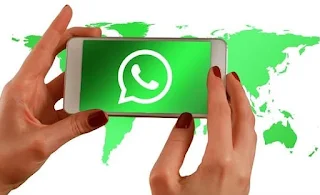From a humble beginnings to $19 billion Richer in 5 years
The History Of WhataApp
From humble beginnings, WhatsApp has grown exponentially thanks to its ease of use and excellent features. However, it wasn’t an easy climb to the top of the messaging charts for this remarkable app.WhatsApp was launched in January 2009 by two former Yahoo! developers, Brian Acton and Jan Koum. After the pair left Yahoo! in September 2007 they spent some time travelling and, as Internet rumour has it, frequently found it difficult to stay in touch reliably with friends and family.
 |
| WhatsApp History |
Brian Acton and Jan Koum testing the latest mobile technology Koum began exploring the possibility EA of
developing an app that would allow mobile users to interact and
communicate with each other better than with what was currently
available. Teaming up with Acton, they began to develop the foundation of WhatsApp, which was to sound like ‘What’s up’.
It was a rocky start for the app, as frequent crashes and failures made
the development process difficult to gain ground. With every negative
impact, Acton’s encouragement helped the duo ride out the storms and
finally release the app to a welcome audience.
With financial help to the tune of $250,000 the now growing team of
WhatsApp developers took the app from an audience of just dozens to
over 200 million by the end of 2012. This staggering growth certainly
gained a lot of attention and shortly after, Facebook became interested
in buying WhatsApp.
In 2014 Facebook (who originally turned Acton and Koum away when they
applied for jobs) bought WhatsApp for the princely sum of $19 billion,
not a bad investment if you were one of the few to originally support
WhatsApp.In 2016 Facebook announced that WhatsApp would be free to
install and use, dropping the $1 annual subscription it had
historically charged. From there, the app has become one of the most
popular messaging services and is continually growing and improving.
Thanks to WhatsApp’s end-to-end encryption and high standards of
security, users can talk, send attachments, images and videos without
fear of being watched or monitored by government agencies and the like.
Users in countries where external communications are heavily restricted
have managed to send word to the outside world
of what’s going on and helped us all become aware of foreign politics.
So WhatsApp really is much more than a simple messaging app. Its beauty
lies in the fact that it can be used by just two people talking to each
other or by thousands of people around the world trying to make
everyone’s lives better. Whoever you are and wherever you are, using
WhatsApp can help you connect and become a part of the global community.
